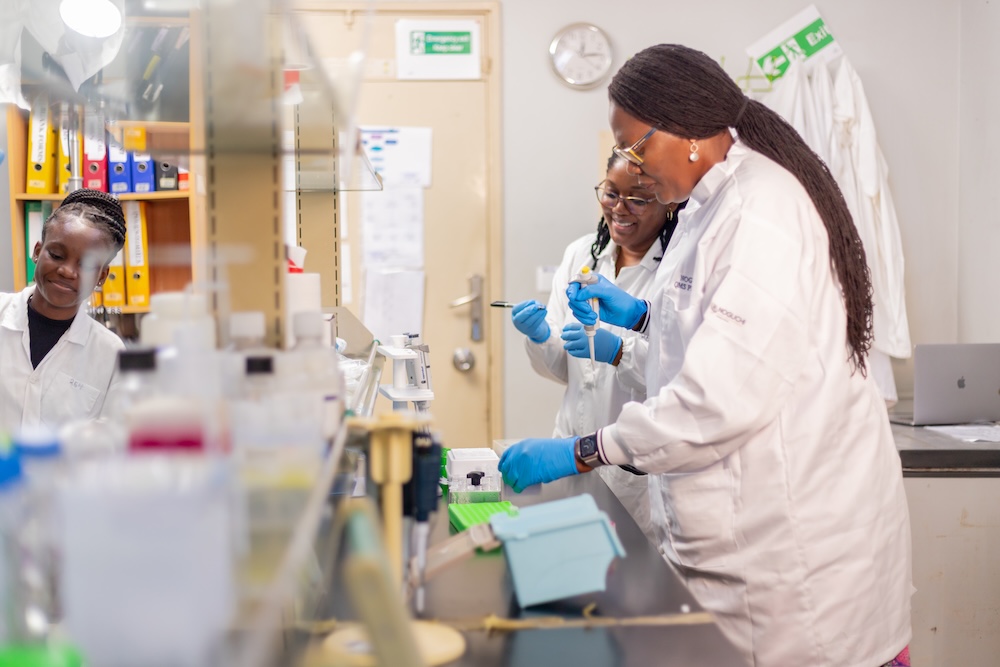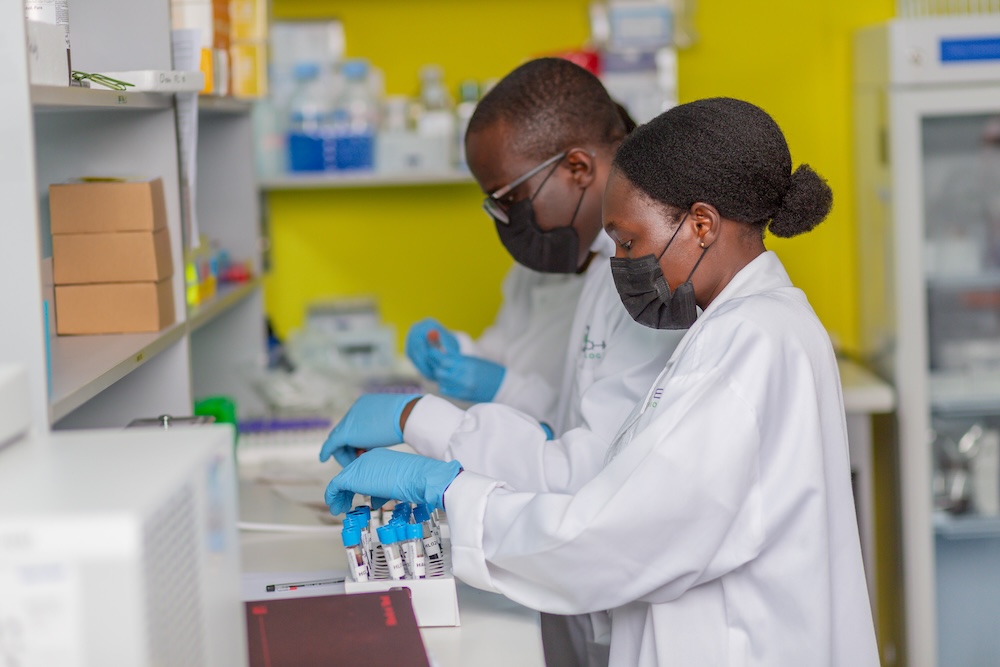
Media Centre
Collaborative partnership with industry to elevate healthcare research in Africa
Friday, November 3, 2023

The Science for Africa Foundation, through its Clinical Research and Trials Community (CRTC) programme is implementing the Cross Pharma Capacity Development Initiative (CPCDI) aimed at increasing the number of clinical research and trial investments on the continent by drawing together local and sector partners to collectively develop clinical trial capacity and sustainably bring more trials to Africa.
The initiative, which has been funded through a grant from the Johnson &Johnson Foundation (Scotland), is in response to the dearth of clinical trials being done within the African continent. According to this paper published in July 2020, less than 3% of clinical trials take place in Africa, though the continent carries 25% of the global disease burden and 15% of the global population.
This disproportion is largely driven by inadequacies in the clinical research capacity, regulatory process ambiguity, deficient regional patient and disease area data, and a lack of visibility of existing clinical research capabilities in Africa.
“The impact that the Cross Pharma-Capacity Development initiative will have on the African research community cannot be understated. We are poised to usher in a new era of clinical research and trial investments on the continent, by fostering collaboration with local and sector partners. We aim to collectively develop and strengthen clinical trial capacity and ultimately bring more trials to Africa. This initiative holds the promise of advancing healthcare, driving innovation, and improving lives across the continent." said Caxton Murira, Programme Lead, Clinical Research and Trials Community.
CPCDI is being implemented by the SFA Foundation and targeted at product development partners (such as TB Alliance, Medicines for Malaria Venture (MMV), pharmaceutical companies, and other related stakeholders to achieve:
- Increased capacity for clinical research facilities: Through training local scientists and researchers, building infrastructure and laboratory facilities, and improving regulatory processes to make it easier to conduct clinical trials in the region.
- Promote collaboration and coordination: By bringing together different stakeholders (e.g., pharmaceutical companies, research institutions, and governments) to work together on common goals, such as identifying priority areas for clinical research or developing strategies to increase funding for clinical trials in Africa.
- Increasing visibility for clinical research capabilities in Africa: Promoting the research capabilities of African institutions and scientists, as well as highlighting the importance of conducting clinical trials in the region.
- Identifying and addressing gaps in clinical trial capacity: Conducting assessments of existing clinical trial capacity in Africa, identifying areas where capacity is lacking, and implementing initiatives to address those gaps.
- Improving access to cutting-edge treatments for patients in Africa: Increasing the number of clinical trials conducted in the region, generating African patient data to ensure that new treatments developed through these trials are made available to patients in Africa.
The initiative’s overall impact is to sustainably increase the number of clinical trials conducted in Africa, improve health outcomes for patients in Africa by providing faster access to innovative healthcare solutions and promote greater sustainability for clinical trial capacity in Africa.
About the SFA Foundation
The SFA Foundation is a pan-African, non-profit, and public charity organisation that supports, strengthens, and promotes science and innovation in Africa. The SFA Foundation serves the African research ecosystem by funding excellent ideas in research and innovation; enabling interdisciplinary collaborations and building and reinforcing environments that are conducive for scientists to thrive and produce quality research that generates new, locally relevant knowledge.
Media enquiries
-
SFA Foundation: Davies Mbela, [email protected]



